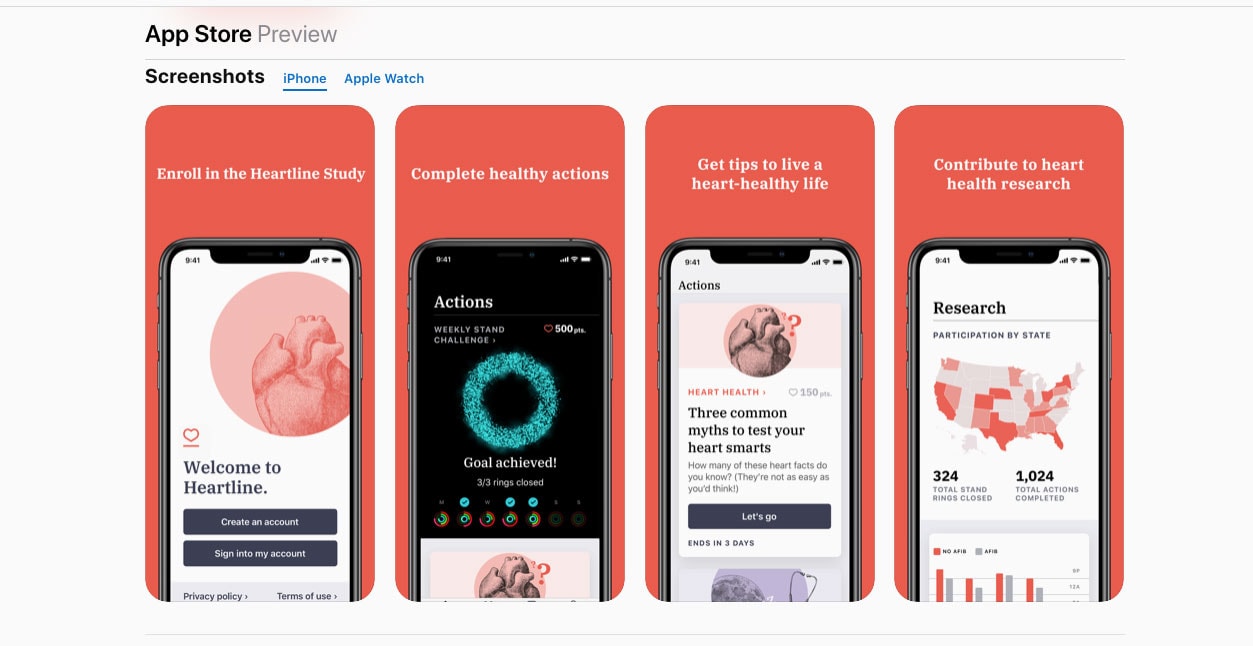Apple will team up with Johnson & Johnson to study whether the Apple Watch and its knack for alerting users to atrial fibrillation can reduce stroke risk in seniors 65 and older.
The Heartline Study will include a special iPhone app. Afib is a leading cause of stroke.
The three-year study is open to seniors in the United States with Original Medicare and an iPhone no older than a 6s. Study participates must provide access to their Medicare claims data. For more information and a preview of the app, click here for details.
Apple heart study: How it will work
Study observers will divide the selected into two groups. One group will use the Heartline Study app on their iPhone. The other will use the app on the iPhone and an Apple Watch provided for the research. Those who already own an Apple Watch can join with certain conditions.
During the study period, participants fill out questionnaires and receive heart health education.
“Apple technology is making a meaningful impact on scientific research through the powerful capabilities of iPhone and Apple Watch, all with privacy at the center of the participant experience,” said Myoung Cha, Apple’s head of Health Strategic Initiatives. “The Heartline Study will help further understanding of how our technology could both contribute to science and help improve health outcomes, including reducing the risk of stroke.”
The Apple Watch routinely grabs headlines when users claim their lives were saved because of the watch’s health-tracking features, like the ECG and fall detection.
Apple and Johnson & Johnson what to determine if an iPhone-app-based heart wellness program, in combination with the ECG and irregular heartbeat notifications can reduce the likelihood of stroke.
“(The study) has the potential to… change our understanding of how digital health tools, like the ECG app and irregular rhythm notification feature on Apple Watch, could lead to earlier detection of AFib, helping patients understand and directly engage in their heart health, prompting potentially life-saving conversations with their doctors,” Harvard professor Dr. C. Michael Gibson, the study’s co-chair, said.


